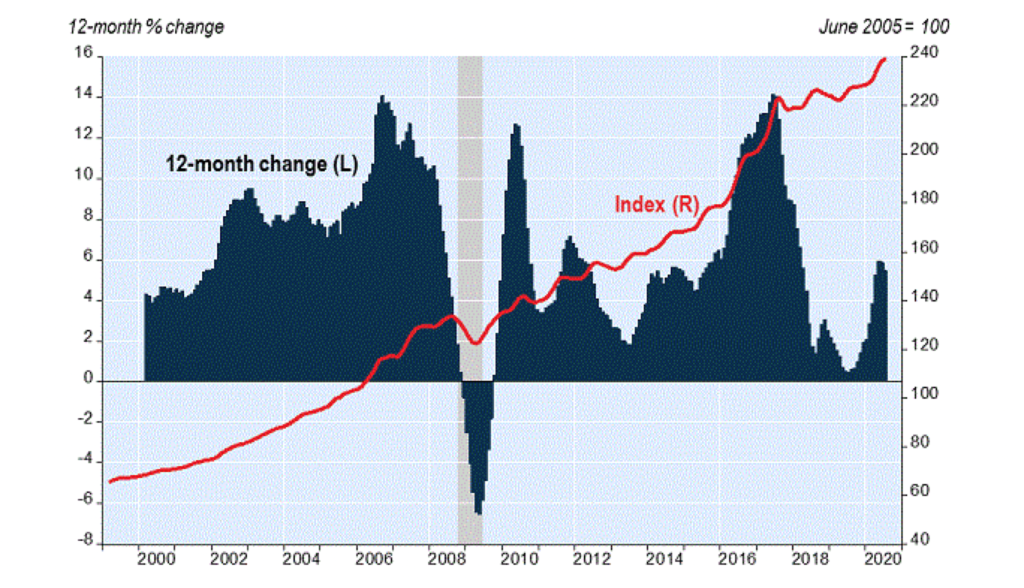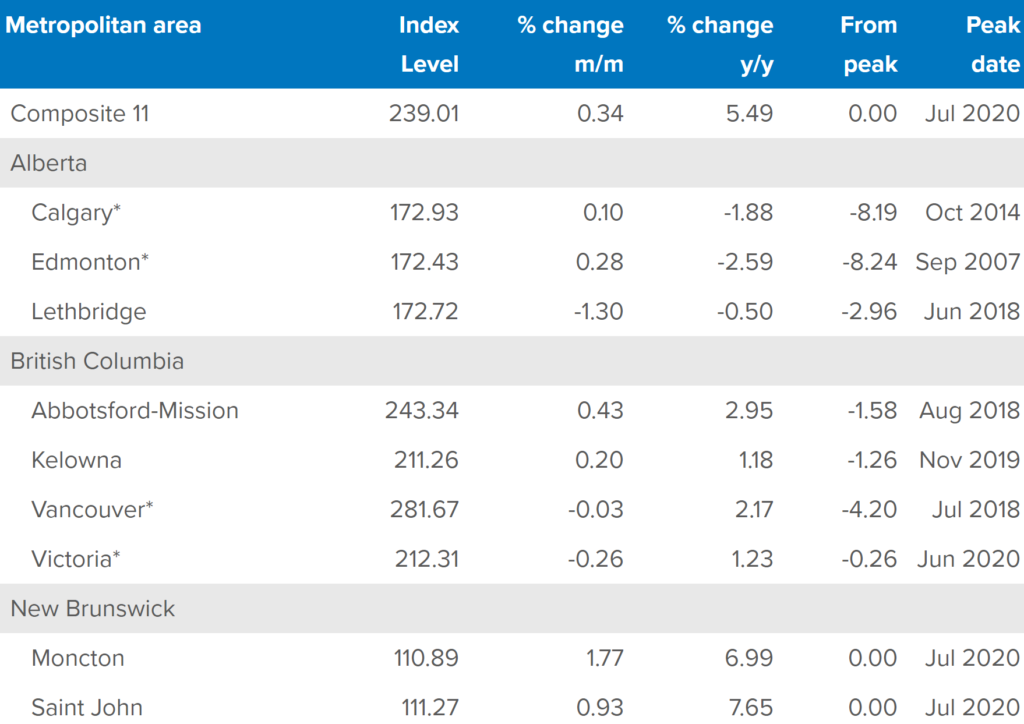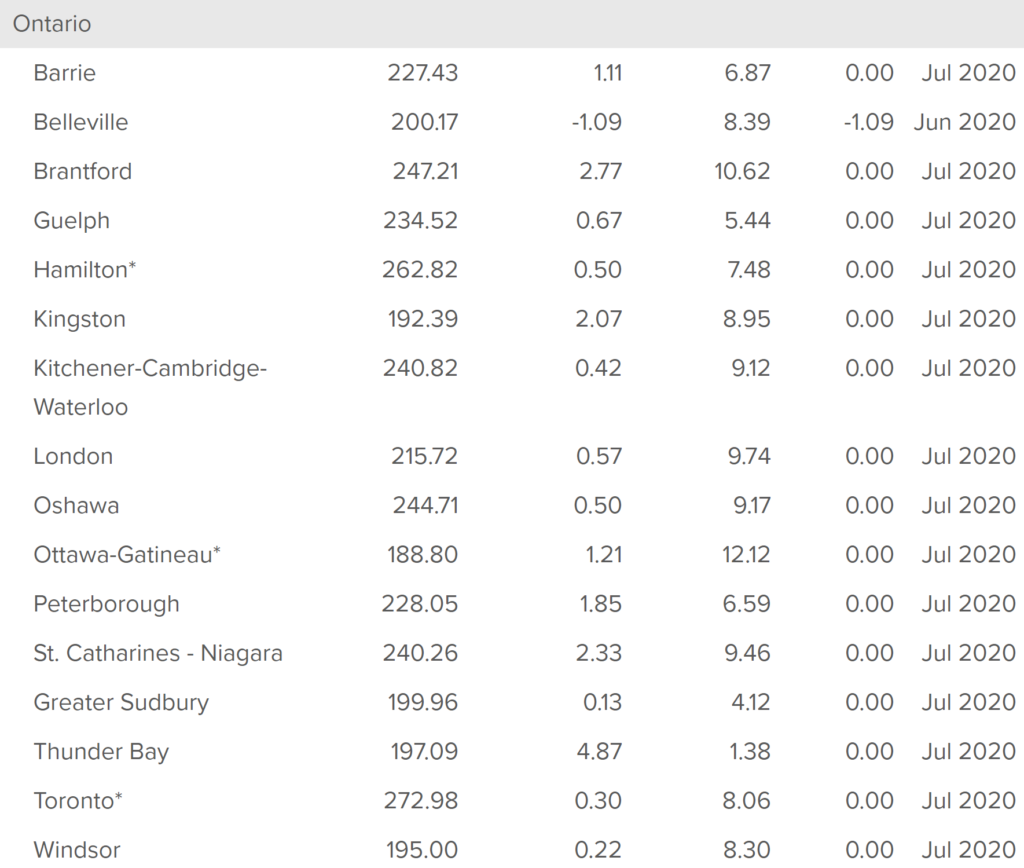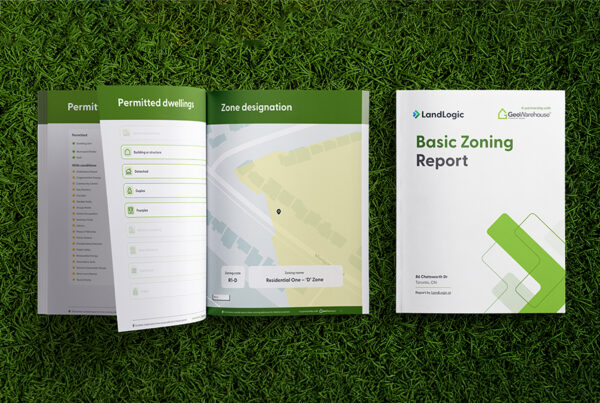

August 20, 2020
The July rise of the Teranet–National Bank National Composite House Price IndexTM confirms the slowing of the housing market in the wake of the pandemic. The 0.3% increase from June was the smallest July rise in 15 years. If typical seasonal variations are taken out (seasonal adjustment), the index would show two consecutive monthly declines, −0.1% in June and −0.3% in July.
In July the composite index was led by the metropolitan markets of Quebec City (1.4%), Ottawa-Gatineau (1.2%), Winnipeg (1.1%), Halifax (1.0%), Montreal (0.8%) and Hamilton (0.5%). The indexes for Toronto and Edmonton matched the countrywide gain of 0.3%. The index for Calgary edged up 0.1%, that for Vancouver was flat and that for Victoria declined 0.3%.
The number of repeat sales entering into the July indexes was down almost 20% from a year earlier, reflecting the decline in home sales reported by the Canadian Real Estate Association, which is in turn attributable to physical distancing to stem the spread of Covid-19. However, if the number of sale pairs in July were seasonally adjusted, it would be up from June, suggesting a partial revival of activity. Another sign of resale-market revival is that the raw index for July, if seasonally adjusted, would be up 0.7% from June after two months of decline. The raw index rose in seven of the 11 markets making up the national composite index.

In July the composite index was up 5.5% from a year earlier, a second consecutive deceleration. The 12-month gain was led by Ottawa-Gatineau (12.1%), Halifax (11.1%), Montreal (9.3%), Toronto (8.1%) and Hamilton (7.5%). Lagging the countrywide average were Winnipeg (3.3%), Vancouver (2.2%), Quebec City (1.4%) and Victoria (1.2%). Deflating over the 12 months were Calgary (−1.9%) and Edmonton (−2.6%).
Besides the Toronto and Hamilton indexes included in the composite index, indexes exist for seven other urban areas of the Golden Horseshoe – Barrie, Guelph, Brantford, Kitchener, St. Catharines, Oshawa and Peterborough. Indexes for all seven were up from the previous month. The 12-month gains ranged from 5.4% for Guelph to 10.6% for Brantford. The table below shows the monthly and 12-month increases of the smoothed indexes. The seasonally adjusted raw indexes (not included in the table) were all up on the month except for Kitchener.
Indexes not included in the composite index are also available for seven markets outside the Golden Horseshoe. For the two in B.C., Abbotsford-Mission and Kelowna, smoothed indexes were up in July from both the previous month and a year earlier, but their seasonally adjusted raw indexes were both down from June. For the five in Ontario – London, Kingston, Windsor, Thunder Bay and Sudbury – smoothed indexes were all up from a year earlier, the advances ranging from 1.4% for Thunder Bay to 9.7% for London. Their seasonally adjusted raw indexes were all up from the previous month except for Thunder Bay.
To download the full report, please visit our website: https://housepriceindex.ca











